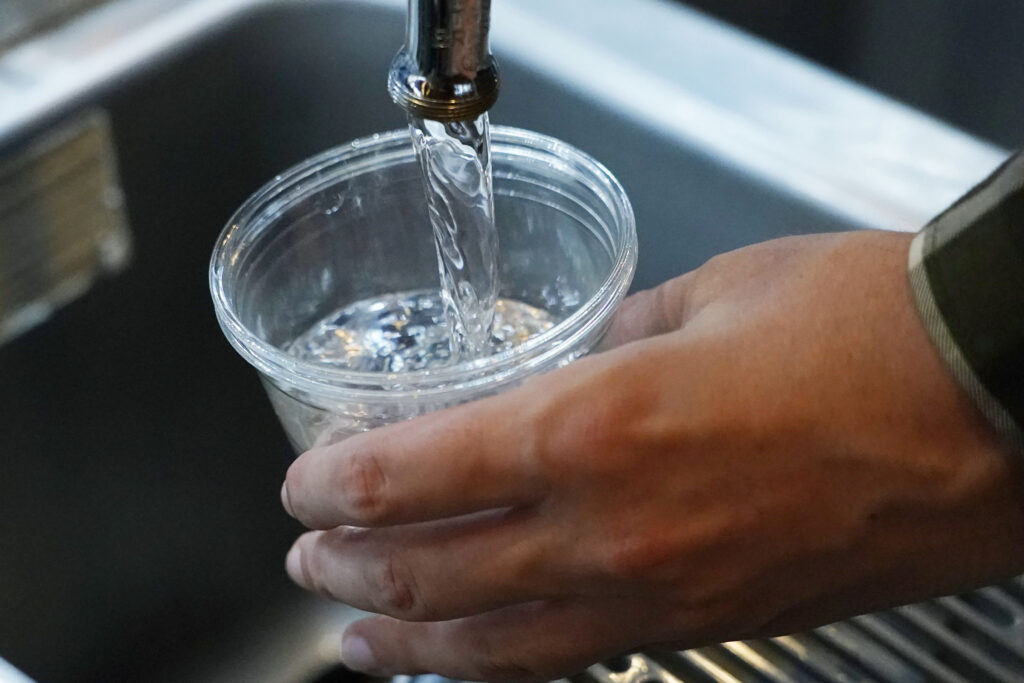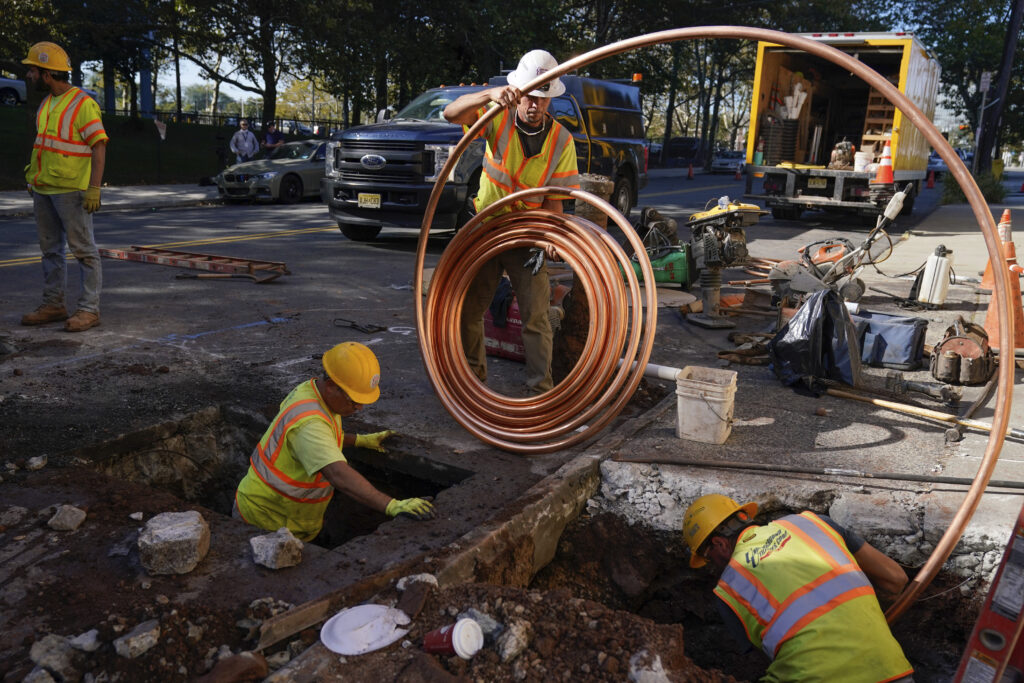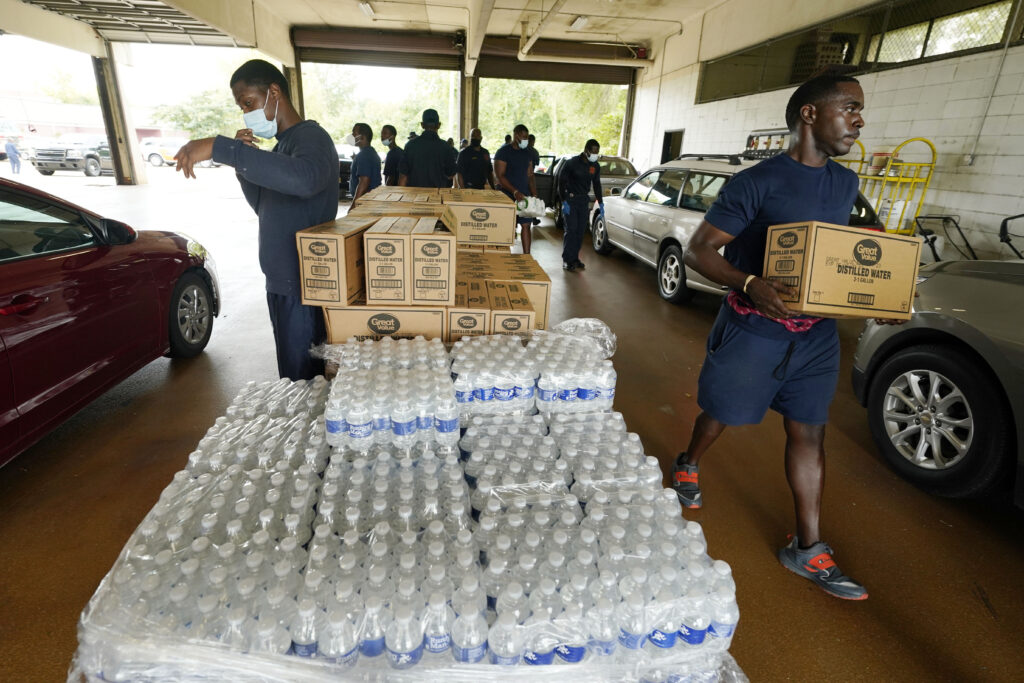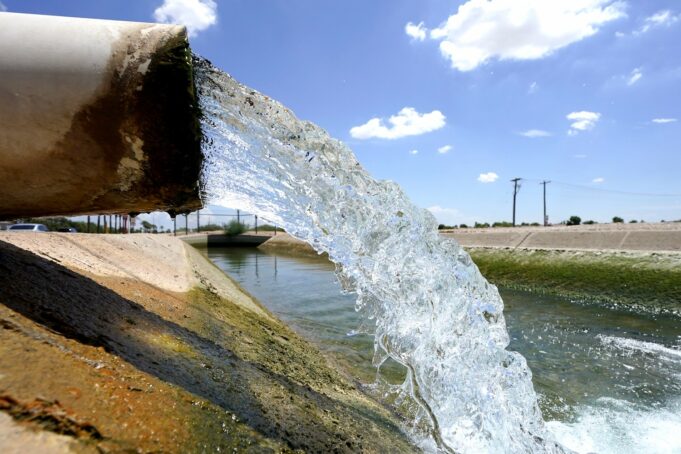Cracks in the façade of American prosperity have once again been exposed to the world with the capital of Mississippi, and its 150,000 residents, becoming the latest on a growing list of U.S. municipalities suffering the decay and neglect of crumbling infrastructures. The city of Jackson is the latest that is unable to produce and provide clean water for its people and businesses.
At presstime, Jackson remained under a boil water advisory which has lasted several weeks, but the drop in water pressure that had brought the system to near collapse appeared to be resolved, officials said, according to Associated Press. However, the crisis is far from over.
Emergency repairs are underway after problems at Jackson’s main water treatment plant caused most customers to lose service for several days in late August and early September. Water is flowing again, but the boil-water advisory is because the state health department found cloudiness in the water that could cause illness, AP reported.

Mayor Chokwe Antar Lumumba addressed a Jackson townhall meeting at College Hill Missionary Baptist Church on September 13, saying that he appreciated the support the city has received from around the state and the country, but added that much more than good will is required to correct what has been a systemic problem for decades.
“From the moment that state officials came in my office and shared that they were going to help in the effort at the water treatment facility, I said thank you,” Mayor Lumumba recounted of his initial meetings with the state and then federal agencies that finally offered the help needed to correct an ongoing problem that for years had fallen on deaf ears.
“There are some things that we have to talk about today that talks about: one, how we got here; two, where we’re at now; and three, where we’re going,” the mayor said of the water supply problems during the townhall. He also spoke on what must be done to correct it once and for all. “This has been a challenge that we’ve known in Jackson for some time,” said Mayor Lumumba.
He has previously stated that it would take more than one billion dollars to fix the water system in the city but that the city’s tax base—which is overwhelmingly Black and poor—would not be able to pay for it.

A symptom of greater problems
Declaring a state-of-emergency from the excessive rainfall and flooding that overwhelmed an already troubled water-treatment facility responsible for the capital’s water supply, Mississippi Governor Tate Reeves announced during a press conference on August 30, that the Mississippi Emergency Management Agency (MEMA) would begin distributing both drinking water and non-potable water to city residents.
Dr. Daniel Edney, state health officer over the Mississippi State Department of Health, added that the quality of Jackson’s water supply was not only a health hazard and dangerous to consume, but also said the contaminated water should not even be used for basic hygiene.
“The water is not safe to drink, and I’d even say not safe to brush your teeth with because we are not seeing adequate chlorination and an ability to consistently disinfect the water,” Dr. Edney added during the August 30 press conference.
As a state still suffering the legacy of racial terrorism, the aftereffects of state enforced segregation, and a blatant history of intentionally undermining Black progress, new generations of Black social and political leaders have emerged, struggling to solve the lingering problems of Mississippi’s past. It is a past that includes the effects of anti-Black racism and the dwindling tax bases associated with White flight as Jackson’s demographics shifted the population to an 81 percent and under-resourced Black majority.

Troy D. Brown, of nearby Greenwood, Miss., is a former U.S. Senate candidate who ran on the Democrat ticket during the 2000 elections. He told The Final Call that aging infrastructure, and the state legislature’s history of refusing to provide adequate funding for repairs, reveals more than just a problem with politics and decrepit city services.
He explained how the failure of critical infrastructure is an embarrassment of colossal proportions, and the resistance to the basic upkeep of a water treatment facility makes it difficult to make the city and state attractive for business and investment. Mr. Brown said he first became aware of Mississippi’s wide-spread infrastructure problems while running for office in the late 1990s.
“To me, and this is my opinion, this thing really boils down to our relationship to one another as it relates to race,” he insisted.
Carlos Martín of the Brookings Institution told NPR during a September 4 interview that Jackson and other minority, low-income cities lack the political clout to get the resources they need for long term planning and investment and that it’s not clear this current crisis will lead to that either.

“Money fixes things at the last minute,” Mr. Martín told NPR. “We have, generally, a history of doing things like what we’re seeing right now in Jackson, declaring an emergency once the damage has already occurred,” he said.
America’s unsafe water
With clean drinking water being an essential building block within a functional and prosperous civilization, questions of its quality and effect upon America’s population should be of vital importance. But according to a nine-month investigation conducted by the UK-based Guardian and Consumer Reports published in 2021, more questions than answers emerge when examining the current state of America’s water supply in 2022.
The report found alarmingly high levels of “forever chemicals,” such as PFAS (per-and polyfluoroalkyl substances), arsenic, lead and other contaminants in tap water sources from 120 different locations across the United States. The report also provided powerful insights into the seriousness of these chemical effects on health and the continued unraveling of a great nation.
“Since the passage of the Clean Water Act in 1972, access to safe water for all Americans has been a U.S. government goal. Yet millions of people continue to face serious water quality problems because of contamination, deteriorating infrastructure, and inadequate treatment at water plants,” wrote Felton, Gill, and Kendall in their March 2021 Guardian article.

The nine-month investigation further found: “A total of 118 of the 120 samples had concerning levels of PFAS or arsenic above CR’s (Consumer Report’s) recommended maximum, or detectable amounts of lead. Testing of the samples showed:
• More than 35% of the samples had PFAS, potentially toxic “forever chemicals,” at levels above CR’s recommended maximum.
• About 8% of samples had arsenic, at levels above CR’s recommended maximum.
• In total, 118 out of 120 samples had detectable levels of lead.
Flint, Michigan, a Black majority city of about 82,000 people, suffered its own water crisis in 2014, after then-Governor Rick Snyder appointed four emergency managers to control Flint’s finances and to reduce state tax burdens by diverting the city’s water supply from Detroit’s water infrastructure to the polluted and highly toxic Flint River.
Leading to what became a city-wide state of emergency, and state and federal promises to upgrade and repair what a deliberate and manmade crisis for short term financial gain, it is unlikely the lawsuits, continued finger-pointing and still unanswered calls for accountability, will solve the chronic health conditions that remain to this day and into the unforeseeable future.
Stating that she and her city stand with the people of Jackson, former Flint mayor Karen Weaver told The Final Call that witnessing the immediate and long-term effects of lead-poisoning upon the young children, adults, and elderly of her city make her reflect upon her vehement opposition to Flint changing its water source in 2014. She said her ignored warnings became saddening consequences effecting Flint’s Black, Brown, and poor populations.
“We started seeing people with chronic illnesses get worse, it was like what is going on here?” she said, referring to fallout from Flint’s poisoned water supply. “One of the things we want to see and have been asking for this for so long and have not had it, but what we were getting ready to put in place when I was in office was a cancer cluster study. We noticed that there are a lot of people in certain areas where the rates of cancer have gone up,” Ms. Weaver stated plainly.
Regarding reports of lawsuits and the issuance of funds in the wake of their water crisis, she cautions those yet to experience such tragedies to consider how politics play out not only in recovery efforts, but also in how compensation is allocated to direct victims.
“You would hear they got this $624 million settlement, the largest settlement in the history of Michigan, (but) so what, what does that mean if it’s still not adequate and not reflective of the value of the lives here in the City of Flint,” Ms. Weaver stated firmly. “We had people die, we didn’t even talk about the adults that died as a result of Legionella (Legionnaires’ disease), we didn’t even talk about the adults that died from pneumonia, that hasn’t even been talked about, yet the attorneys got almost $200 million.”
The ultimate plan
Problems with contaminated drinking water remain a cause for alarm in nearly every city across the country and as Jackson is the latest city to occupy the headlines, as did Flint seven years ago, water crises in cities like East St. Louis, Illinois; Benton Harbor, Michigan; Baltimore; Rio Grande Valley, Texas, and Las Vegas continue to occur particularly in communities with significant Black, Brown, or poor populations.
“Illinois has more lead service water pipes than any other state in the country and Chicago, not Flint, has more than any other city in this country. Flint is actually not the lead capital, Chicago is,” said Student Minister Dr. Wesley Muhammad during a message from the Nation of Islam’s flagship mosque in Chicago. Student Minister Wesley Muhammad explained the fallout that lead contaminated pipes has on the physical and psychological well-being of Black youth in particular when it comes to violence. Ninety-five percent of these lead service lines are in Black and Brown zip codes, stated Student Minister Wesley Muhammad, a researcher, author, member of the Nation of Islam Executive Council and member of the Honorable Minister Louis Farrakhan’s Research Team. “The city mandated the use of lead service pipes in these areas after they knew how dangerously poisonous they were,” he charged.
Student Minister Dr. Abdul Haleem Muhammad is the Southwest Regional Representative of the Nation of Islam. He also holds a Ph.D. in Urban Planning. He shared a quote from Minister Farrakhan from an October 18, 2009, message delivered in Memphis, Tenn., marking the 13th Anniversary of the Million Man March where he remarked on the failure of government.
“Now the government has literally failed to satisfy the needs of people and there is no government that is looking out for the needs, rights, and interests of all of the people that they are governing. To govern means to direct, to guide, to exercise authority over, to rule, to administer and to influence the actions of, and to check, restrain, or curb those activities, by means of law, that which would bring the system of government to a halt, the most important thing in government is guidance,” the Minister said in part, according to Student Minister Haleem Muhammad.
Referring to an article on a Mississippi political and news website, yallpolitics.com, Student Minister Haleem Muhammad recounted that during the 2022 Mississippi legislative session, lawmakers adopted a budget for fiscal year 2023 of just under $6.3 billion. However, the state legislature did not submit a traditional bond bill, which saved the state about $3 million in interest and roughly $9 million long term. He added, that State Treasurer David McRae thanked the Mississippi Legislature and Governor Reeves for delivering the largest tax cut in state history by declining to pass the annual bond bill.
“Jackson State University (an HBCU) has a Masters of Arts in Urban and Regional Planning. They also offer a Doctorate in Urban and Regional Planning. Jackson State also offers courses in Masters of Science in a graduate engineering program, so you can get an MS degree in civil engineering, environmental engineering, geological engineering, computer engineering, electrical engineering or telecommunications engineering,” said Student Minister Haleem Muhammad.
“The question is if we have the knowledge, but we don’t have the resources to put that knowledge into play for the sake of the people of Jackson, Mississippi, and Mississippi and Black people across this country, then what is the ultimate plan for us in these cities and across the world?”













